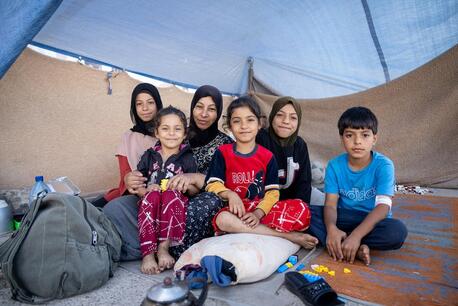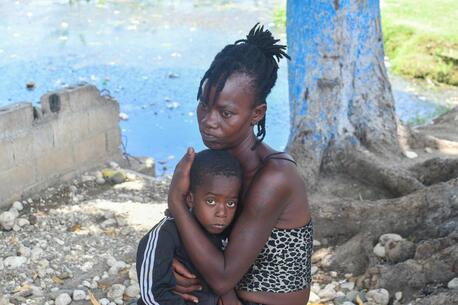
In Haiti, Alarming Numbers of Children Joining Armed Groups
Children in Haiti are being pushed to join armed groups amid horrific violence, poverty and a breakdown in the systems that should protect them. UNICEF is calling for more international support to meet the humanitarian and protection needs of the most vulnerable.
One-third to one-half of armed group members are children
The situation in Haiti has become so dangerous and desperate that many children — increasingly vulnerable to abuse and exploitation and without other means of survival or protection — have been forced to join an armed group, a clear violation of their rights.
An estimated 30 to 50 percent of armed group members are now children, according to the UN — another sign of how far conditions have deteriorated due to the ongoing violence and chaos in the country.
The proliferation of armed groups in Haiti is the result of years of political turmoil alongside persistent social and economic fragility. Nine out of 10 people live in poverty, and 3 million children are in urgent need of humanitarian assistance.
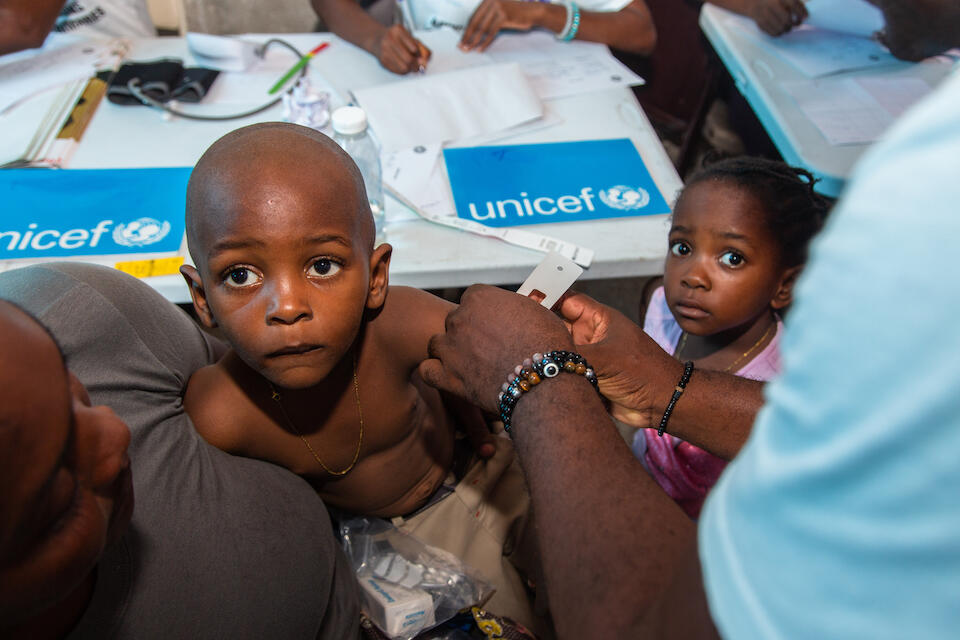
“Children in Haiti are stuck in a vicious cycle of suffering," UNICEF Executive Director Catherine Russell said. They are "pushed to join armed groups out of pure desperation, including horrific violence, poverty and a breakdown in the systems that should protect them."
Children are used by armed groups for different tasks, including as cooks, cleaners, ‘wives’, or lookouts, Russell noted. "But what these children have in common is a loss of innocence and the connection to their communities," she said.
"The impact on each affected child is a tragedy that demands urgent action. Their protection and welfare must be prioritized, including safely ending the connection with armed groups, ensuring their reintegration into society, and facilitating safe access to essential services and support.”
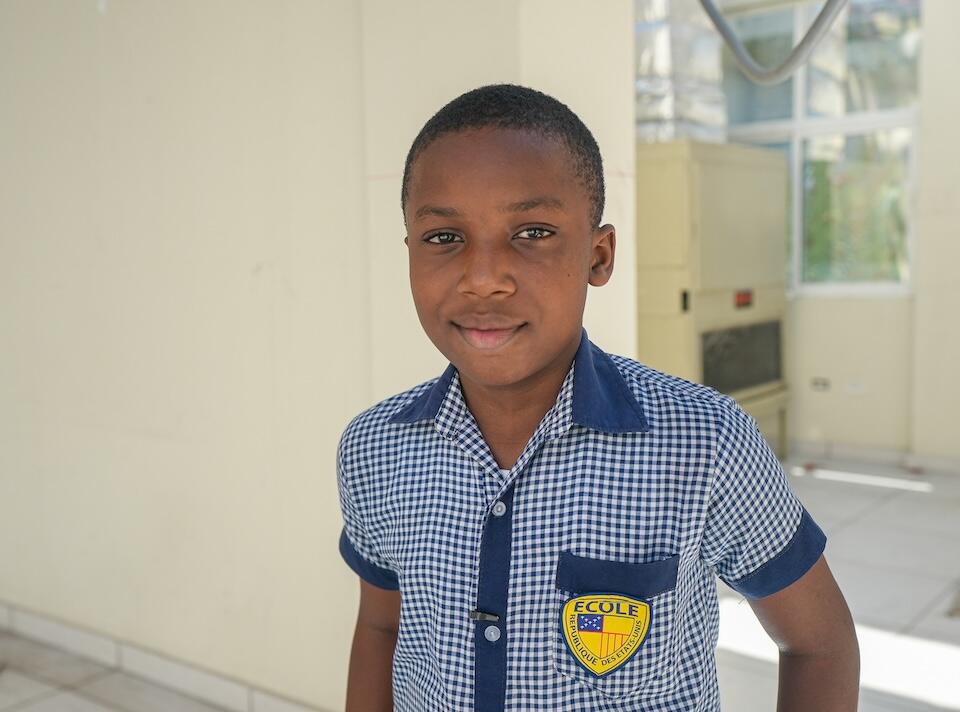
Some children are compelled to join an armed group as a means of supporting their families
Children are frequently compelled to join armed groups either as a means of supporting their families, or due to threats against themselves or their families. Many join after becoming separated from parents and caregivers.
It is estimated that about 500,000 children in Haiti are living in neighborhoods controlled by armed groups, which puts them at higher risk of violence and child recruitment.
Recruitment and use of children by armed groups constitutes a grave violation of their rights, and enlisting children of any age into armed groups is a clear breach of international law.
UNICEF and Haiti's Ministries of Justice, Education and Labor and Social Affairs recently agreed on joint ways of working to support the reintegration of children who were members of armed groups, a development that is considered a milestone in child safeguarding.
Children in Haiti have also been killed, injured and kidnapped as violence has intensified in recent months. The UN has verified more than 400 grave violations against children in the country. Meanwhile, families continue to be displaced by the violence. As of late May, more than 180,000 children were internally displaced, UNICEF reported.
UNICEF continues stepping up efforts to protect and support children and families in Haiti
Despite the highly volatile environment, UNICEF is stepping up efforts to protect families and to provide lifesaving support to those in need, including those trapped and cut off from essential services.
Together with the government and other partners, UNICEF is helping to sustain national, regional, and local systems and services, working in the most insecure neighborhoods.
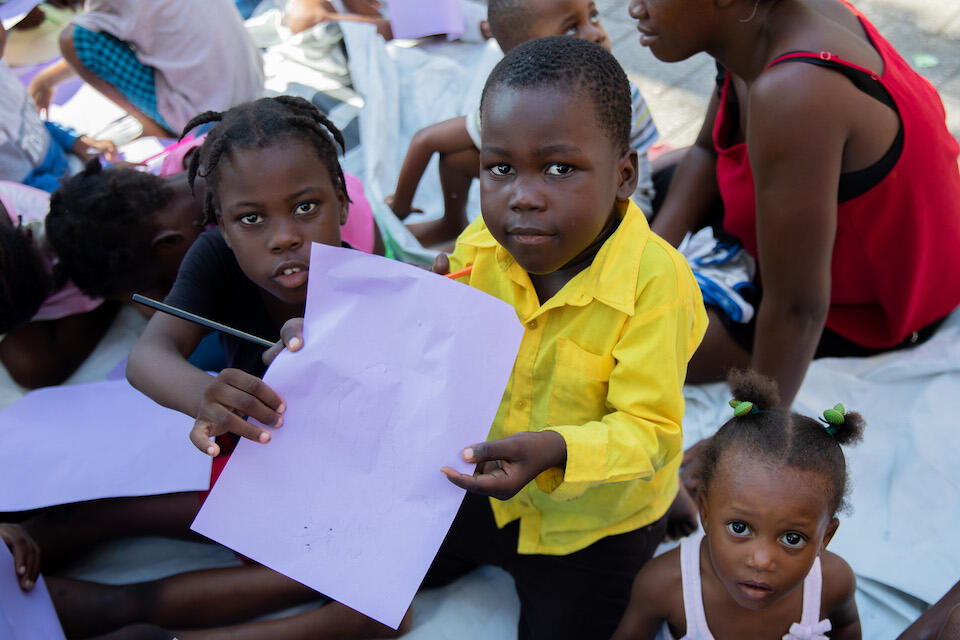
In its most recent call to action, UNICEF urged the international community to increase immediate, flexible funding to meet the humanitarian and protection needs of the most vulnerable children in Haiti, and to help ensure that aid reaches children who have escaped or been released from armed groups as quickly as possible.
UNICEF also called for help to:
- ensure the internationally supported security mission prioritizes the protection of children, the safety of civilians and a commitment to uphold humanitarian law and space for humanitarian action
- support efforts to prevent and end grave violations against children, the protection of schools, hospitals and other facilities children rely on, and the safeguarding of humanitarian spaces
- strengthen support for in-country efforts to secure sustained, predictable and unimpeded humanitarian access at scale — including safe movement of humanitarian and frontline workers and delivery of essential services and supplies to populations in need
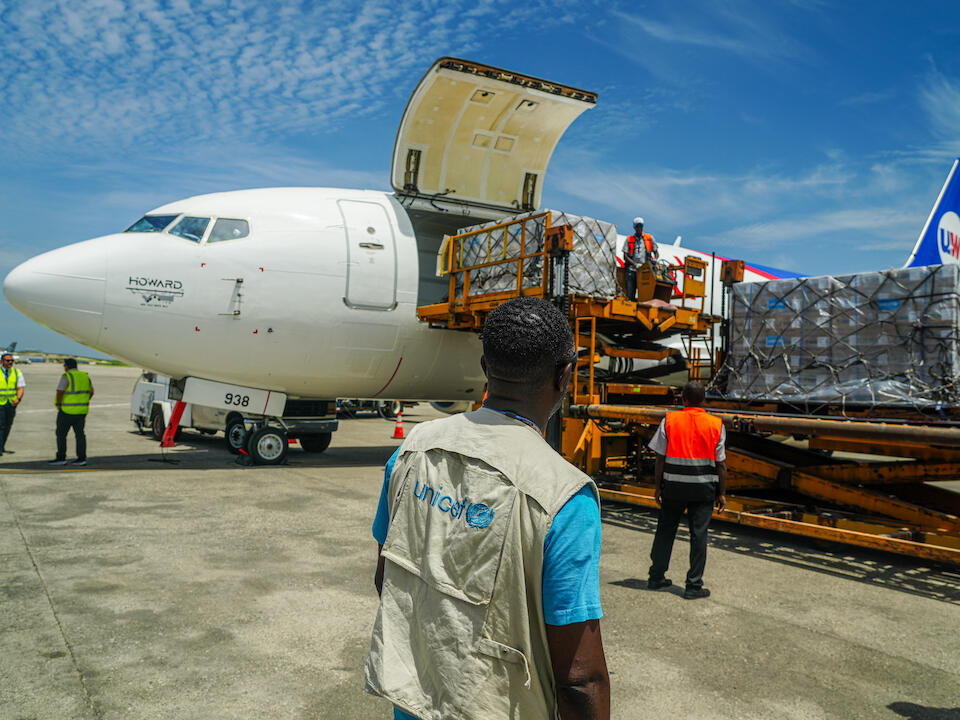
HOW TO HELP
There are many ways to make a difference
War, famine, poverty, natural disasters — threats to the world's children keep coming. But UNICEF won't stop working to keep children healthy and safe.
UNICEF works in over 190 countries and territories — more places than any other children's organization. UNICEF has the world's largest humanitarian warehouse and, when disaster strikes, can get supplies almost anywhere within 72 hours. Constantly innovating, always advocating for a better world for children, UNICEF works to ensure that every child can grow up healthy, educated, protected and respected.
Would you like to help give all children the opportunity to reach their full potential? There are many ways to get involved.




